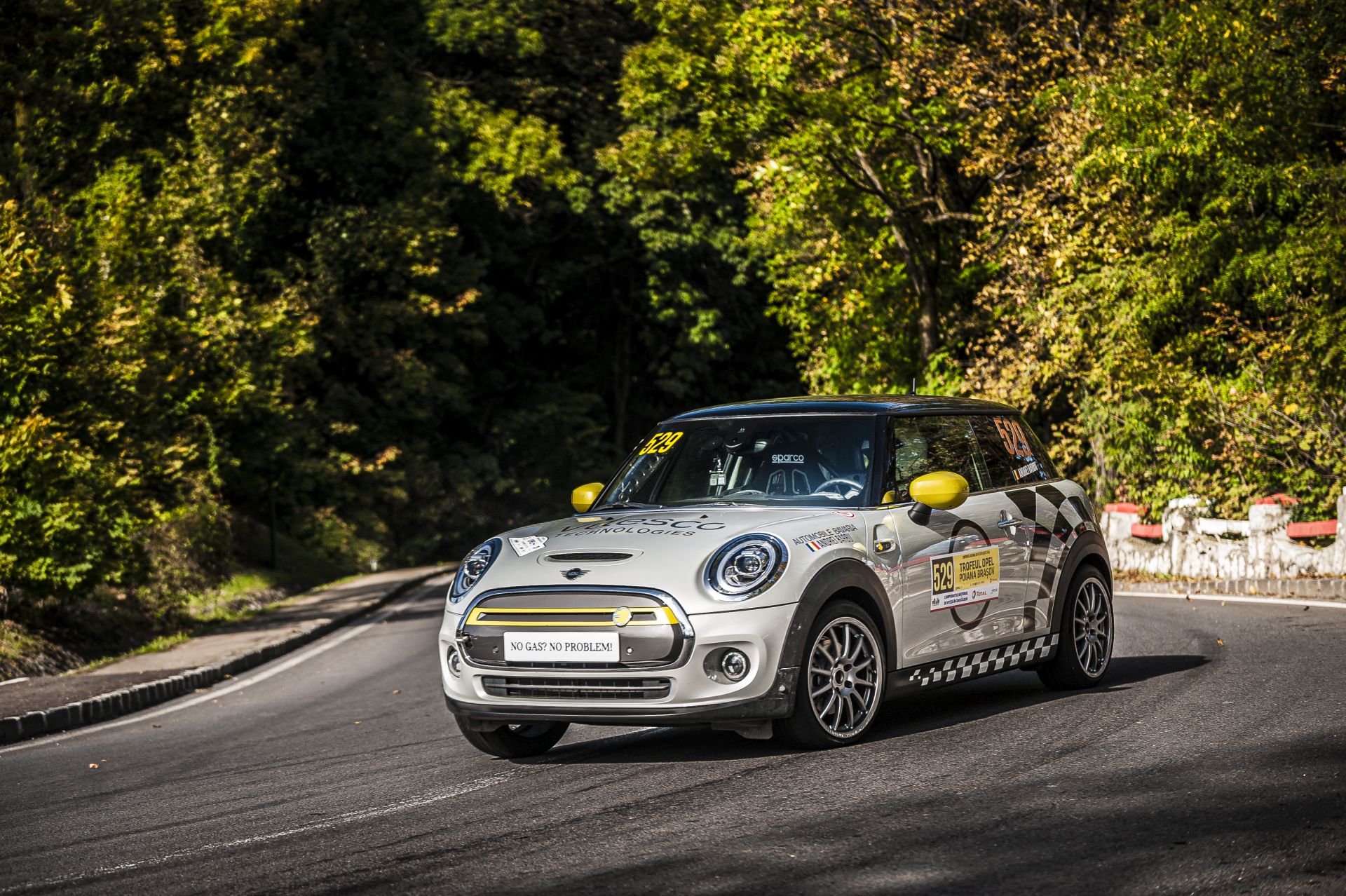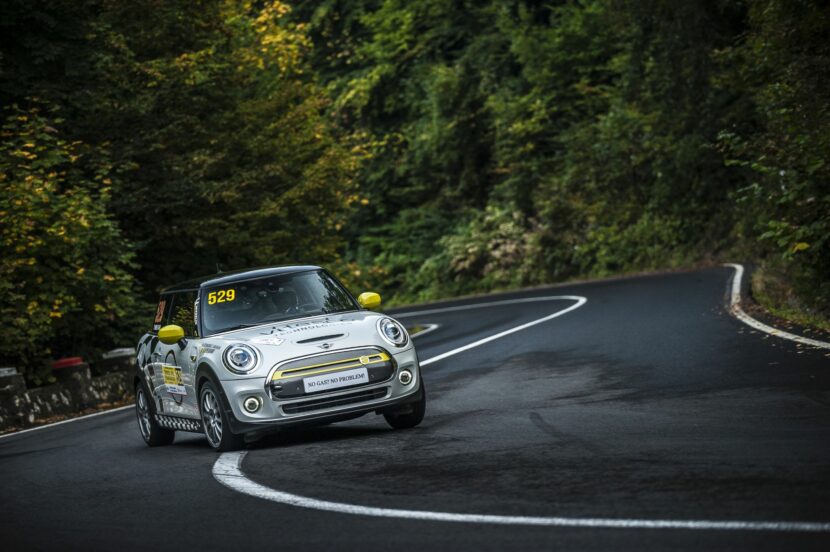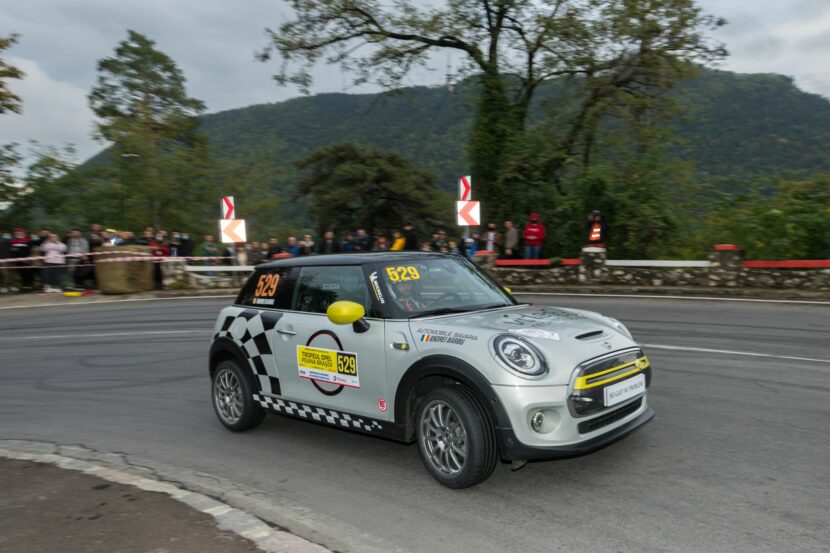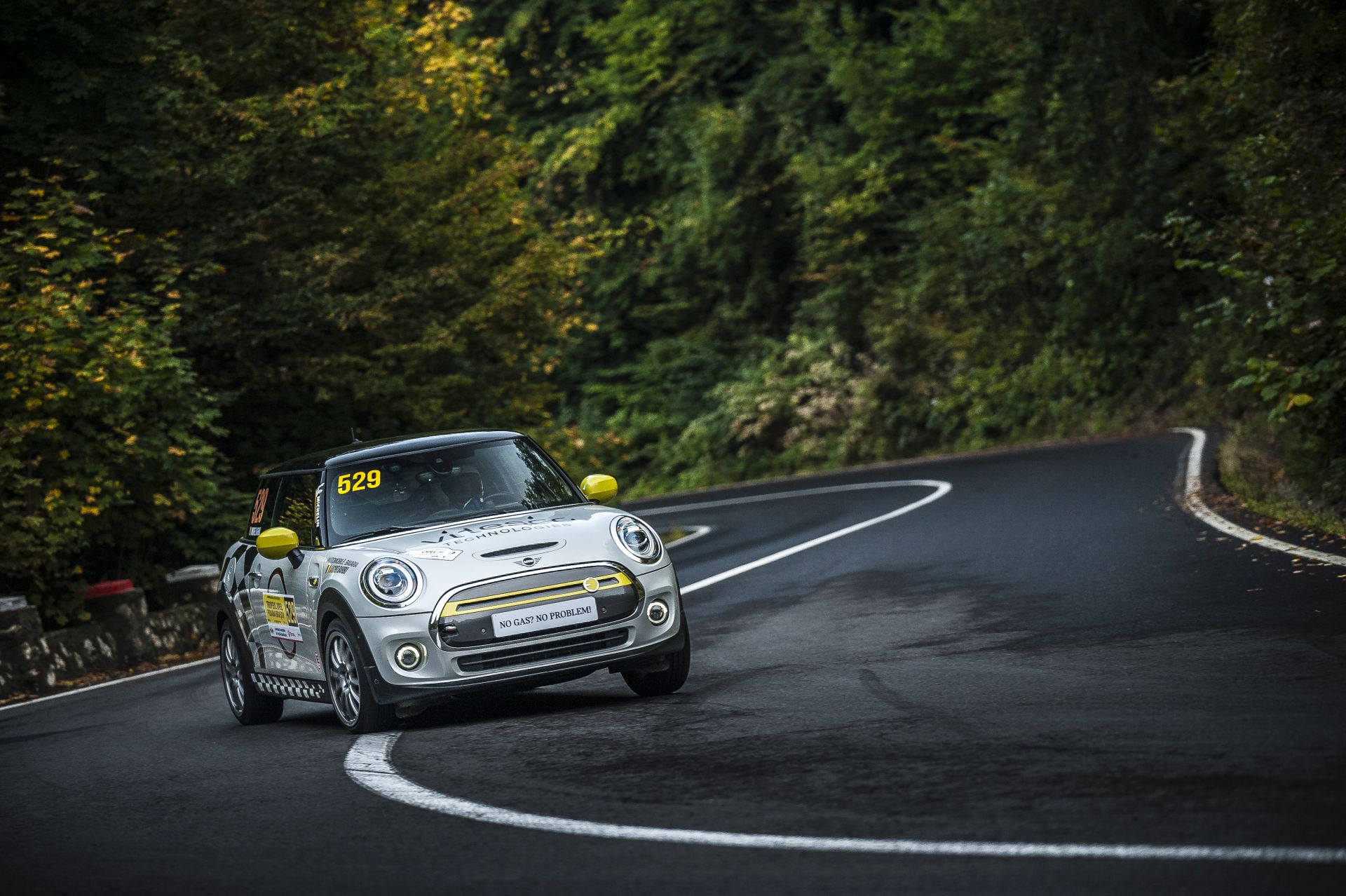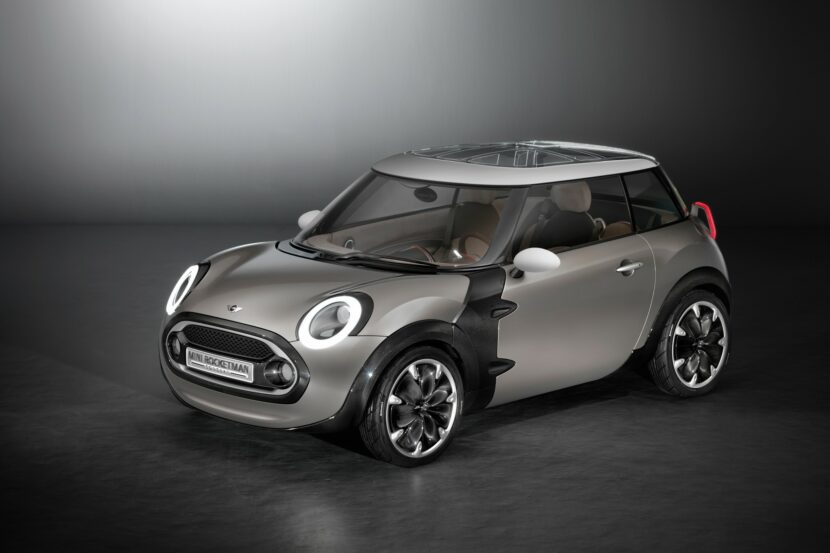A few months ago, BMW Romania started an audacious project with the end goal of turning a regular MINI Cooper SE into a rally car and actually use it to compete in proper competitions. Well, the moment has come to actually witness this thing become reality, as their MINI Electric ran in its first officially-sanctioned racing stage. This world first took place this weekend, in Romania, as the car ran in the Opel Trophy at Brasov.
This was just the first race in a long series to come and the car will be further modified to cope with the challenging conditions in the Romanian National Hill Speed Championship. The racing MINI Electric lined-up at the starting line with minimal changes done to it, most of them focused on safety.
The MINI Electric Racing car got its rear seats removed and new ones thrown in up front, six-point seat belts, a new roll cage and Michelin Pilot Sport 4 tires. Altogether, the car lost some 150 kilos and will get a new suspension, new tires and a new management unit for the battery module for the next race.
According to the pilot, Andrei Barbu, the car has a lot of potential, this initial run being used more as a benchmark than anything else: “I set off in this adventure rather skeptical towards the car’s potential. However, during my eight runs in this stage I learned a lot about the car, its pros and cons and I can say there’s room for improvement.
This is where our partners from Vitesco Technologies will step in, as they will hopefully provide a better thermal management solution for the battery packs, so that we can squeeze 100% of the performance they can offer in future runs.”
“The maiden race for the MINI Electric Racing marks the start of a daring adventure. It was a great challenge to be able to deliver the car in time for the race, especially during these troubling times. We’re still in the early stages of this project and we don’t have any special modifications done to the car to enhance its performance so far but this only goes to show that the MINI Electric, even in stock form, can deliver incredible performance and keeps the ‘go-kart’ feeling alive and well,” said Dr. Josef Reiter, General Manager BMW Group România.
Even though the car needs a lot more work, it managed to finish in the second half of the standings during its first outing with an average speed of 96 km/h (60 mph) throughout the stage. As for the energy consumption, the average was around 50 kWh/100 km covered uphill and half of that downhill. What’s truly impressive is that the car did all its runs with one single charge.


